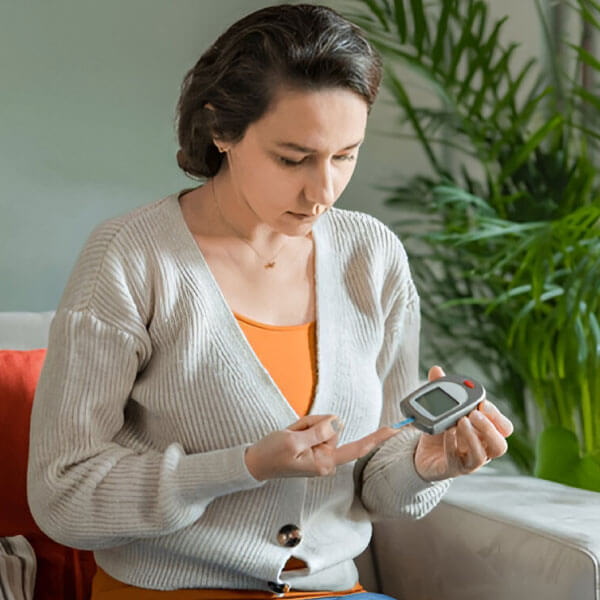
Diabetes-related sexual issues include changes in desire, comfort, or sexual response caused by high blood sugar levels. These changes can affect intimacy and confidence. Visit our DOXXES store on Westheimer/Dairy Ashford to explore supportive products designed to restore comfort and pleasure.
What Is Diabetes-Related Sexual Dysfunction?
This condition includes any sexual difficulty—such as dryness, discomfort, or trouble reaching climax—that comes from diabetes.
Types include:
- Superficial problems – like vaginal dryness or friction
- Deep problems – like trouble with arousal or orgasm
- Provoked pain – pain triggered by touch or activity
Why Does It Happen?
Mental and emotional factors may include:
- Worry about blood sugar levels
- Stress, anxiety, or low mood
- Past trauma related to pain
- Miscommunication in relationships
Physical causes often include:
- Nerve damage (diabetic neuropathy)
- Hormone imbalances (low testosterone or estrogen)
- Muscle tightness in the pelvic floor
- Poor circulation or infections
These issues often appear together, so treating both body and mind helps most.
Examples and Identifying Triggers
Real-life examples:
- Dryness that leads to discomfort during sex
- Difficulty getting or keeping an erection
- Feeling less sensitive or unable to climax
- Abdominal pain after sex
How to find your triggers:
- Track your sugar levels, moods, and symptoms each time
- Note what changes when you switch positions or timing
- Try a water-based lubricant to reduce dryness and pain
Who Is Affected and Gender Differences
Anyone with diabetes can face sexual changes.
- Women may feel dry, sore, or less interested in intimacy
- Men may have trouble with erections or stamina
- Couples might feel distant or frustrated
Support groups for women with diabetes and intimacy concerns often help people feel less alone and more understood.
How a Sex Therapist Can Help
- Talk through your full sexual history, including symptoms like “painful abdomen after intercourse”
- Help with mental health factors such as stress, anxiety, or body image
This full-picture approach supports both emotional and physical recovery.
Ways to Treat and Cope
Emotional support:
- Therapy to address fears, stress, or low confidence
- Couples counseling to improve understanding and communication
Physical strategies:
- Keep blood sugar stable to protect nerves and blood flow
- Try pelvic floor exercises and gentle relaxation techniques
- Use diabetic-friendly personal care routines

How Doxxes.love Can Help
Our store offers body-safe products that support healing and comfort:
- Neutral pH, water-based lubricants
- Pelvic floor exercisers for better muscle control
- Soft-touch vibrators for gentle stimulation
- Adjustable prostate massagers for comfort and ease
Each comes with safe-use instructions. Used alongside therapy, these tools can help improve intimacy and quality of life.
Talking About It with Others
- Share how you feel: “I get nervous when it hurts.”
- Use “I” statements to keep the tone respectful
- Choose a calm, private time to talk
- Read guides together and seek shared learning
- Get help early if stress or pain builds
Visit Our DOXXES Store on Westheimer/Dairy Ashford
Come by our private and welcoming store to explore our product range. Our trained staff offer personal guidance in a discreet setting. Your comfort and confidentiality are always respected.
Conclusion
Diabetes-related sexual challenges are real—but with the right tools, open conversations, and supportive care, intimacy can feel good again. Visit our DOXXES store on Westheimer/Dairy Ashford to find the help you deserve.
FAQs
- What is diabetes-related sexual dysfunction?
It includes issues like dryness, low desire, or difficulty reaching climax caused by diabetes. Both men and women can experience physical and emotional changes in intimacy. - What types of sexual issues can diabetes cause?
• Superficial – vaginal dryness or friction
• Deep – reduced arousal or inability to orgasm
• Provoked – pain triggered during touch or activity - Why does diabetes affect sexual health?
It may happen due to nerve damage, poor blood flow, low hormones, pelvic tightness, or infections. Stress, anxiety, and relationship issues can also contribute. - What are common signs or symptoms to watch for?
• Dryness or discomfort during intimacy
• Trouble getting or maintaining an erection
• Reduced sensitivity or delayed climax
• Abdominal pain after sex - How can I identify my personal triggers?
Keep track of blood sugar, mood, and symptoms. Try changing timing, using lubricants, or exploring different positions to find what feels better. - Who is affected by sexual problems related to diabetes?
Anyone with diabetes may experience changes. Women may feel dryness or low desire, while men may struggle with erections. Couples may feel disconnected or confused. - How can a sex therapist help with these concerns?
A therapist can review your symptoms, explore emotional blocks, and guide you with tools for healing, intimacy, and confidence. - What treatment options help manage these symptoms?
• Talk therapy or couples counseling
• Stable blood sugar management
• Pelvic floor exercises
• Gentle intimacy techniques and diabetic-safe care - What DOXXES products support healing and comfort?
• Water-based lubricants for dryness
• Pelvic floor trainers
• Soft-touch vibrators
• Adjustable prostate massagers
Each tool includes safety tips and supports comfort when paired with therapy. - Where can I get discreet in-person help?
Visit DOXXES on Westheimer/Dairy Ashford. Our friendly team provides personalized, respectful service to help you feel better in your body and relationships.
